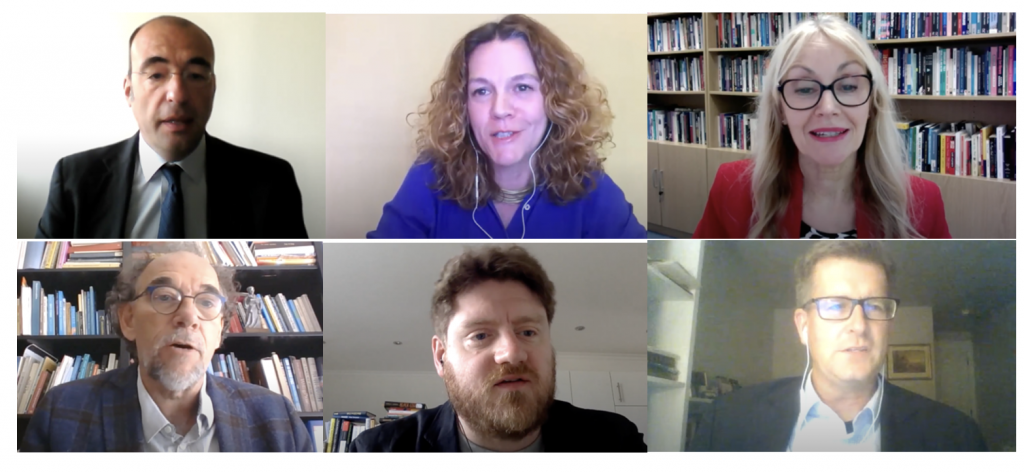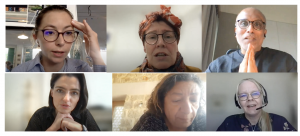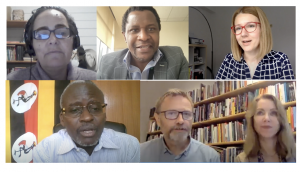As part of the 2022 International Association of Media and Communication Research (IAMCR) Conference, the Centre for Freedom of the Media co-hosted the second Academic Consultation on UN Action Plan on the Safety of Journalists and the Issue of Impunity on the occasion of its 10th Anniversary.
The session was organised in collaboration between the Journalism Safety Research Network/the UNESCO Chair on Media Freedom, Journalism Safety and the Issue of Impunity hosted by the Centre for Freedom of the Media (CFOM), University of Sheffield and UNESCO’s Freedom of Expression and Safety of Journalists Section.

The session entitled “Developing an academic research and impact agenda to feed into the implementation of the UN Plan of Action on the Safety of Journalists on its 10th Anniversary Consultation: building a multi-stakeholder knowledge exchange community” was held online and video recorded on June 9 for the 2022 IAMCR Conference (held on July 11-15).
Discussions focused on exploring how academia can be mobilised to foster the continued implementation of the UN Plan of Action on the Safety of Journalists and the Issue of Impunity (UN Action Plan) through effective knowledge exchange and impactful collaboration between academic and non-academic actors to bridge the gap between theory and practice.
 The session programme included a showcase of examples of academic and non-academic collaboration to support the implementation of the UN Action Plan and a series of “Flash Talks” by academic speakers, reflecting on how academia can contribute towards the future implementation of the UN Action Plan through collaboration, including via multi-stakeholder collaboration. The session concluded with a facilitated discussion and exchange between invited academics and non-academic stakeholders to support the formulation of input to the UN Action Plan.
The session programme included a showcase of examples of academic and non-academic collaboration to support the implementation of the UN Action Plan and a series of “Flash Talks” by academic speakers, reflecting on how academia can contribute towards the future implementation of the UN Action Plan through collaboration, including via multi-stakeholder collaboration. The session concluded with a facilitated discussion and exchange between invited academics and non-academic stakeholders to support the formulation of input to the UN Action Plan.
The recorded session can be viewed here.
A third Consultation Session will be held in November and together the sessions will support the formulation of a set of recommendations from the global academic community to the Ministerial Conference on the UN Action Plan in November 2022.
Overall Objectives of the Academic Consultation Sessions on the UN Action Plan:
- Take stock of the research conducted into issues of the safety of journalists since the adoption of the UN Action Plan in 2012, in line with recognizing academic research as one of the six priorities of the UNPA, and including on the occasion of the 7 past editions of the academic conferences on the Safety of Journalists on the occasion of the WPFD global conferences, as well as the launch of the UNESCO Research Agenda on the Safety of Journalists in 2015.
- Facilitate a broad discussion on how academia can support the continued implementation of the Action Plan (beyond 2022), particularly in bridging the gap between theory and practice, and highlighting concrete success stories of impact and of academic research transferred to improved action.
- Bring together diverse perspectives (disciplinary, cultural and geographical, with a particular focus on Global-South inclusion) on research related to issues of the safety of journalists that can feed into ongoing international multi-stakeholder consultation processes on the UN Action Plan.
- Discuss strategies of integrating emerging issues such as the safety of women journalists and the impact of technology on the safety of journalists, in mainstream academic research on safety of journalists.
- Discuss strategies of interdisciplinary research on emerging issues such as SLAPPS, digital threats, etc.
- Support the formulation of a set of recommendations from the global academic community to the Ministerial Conference on the UN Action Plan in November 2022.
For more information on the consultations please contact: Sara Torsner (s.k.torsner[@]sheffield.ac.uk)

